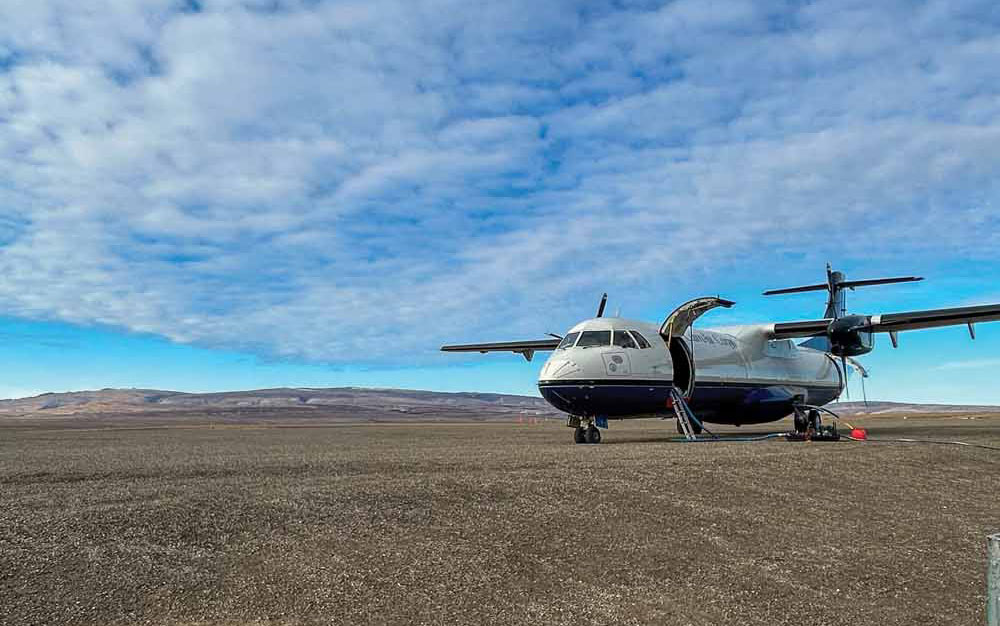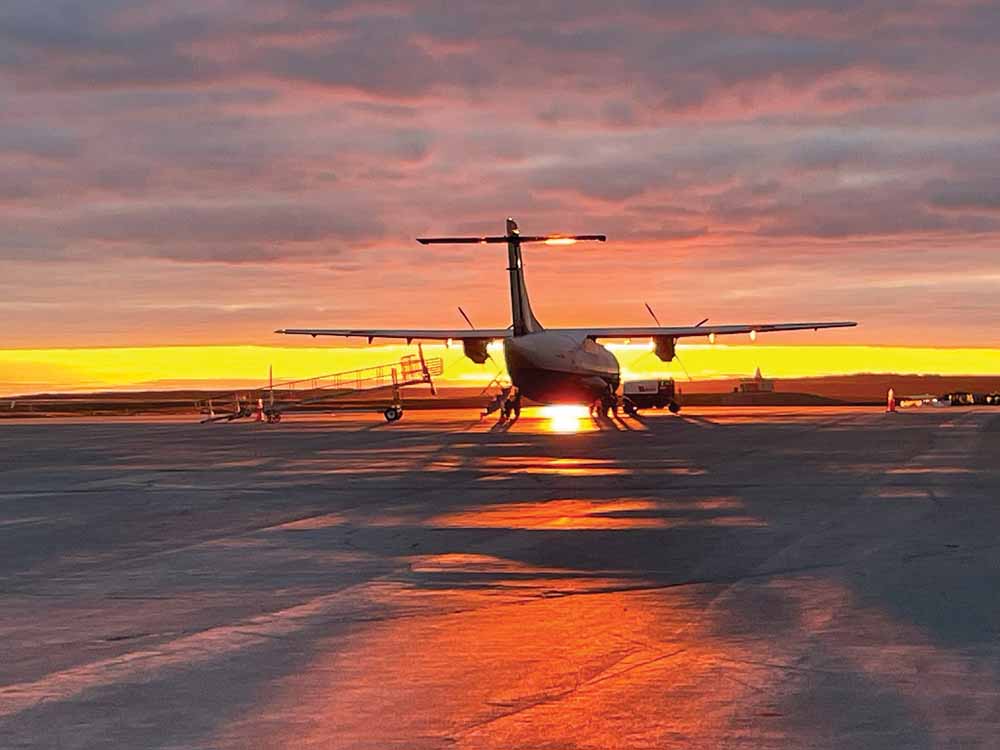Calm Air

A Calm Air ATR unloading fuel at Eureka Research Base. Photo: Capt. Nicolas Harman (Calm Air)
At A Glance
Pilots joined ALPA: 1997
Number of pilots: 108
Pilot bases: Thompson and Winnipeg, Man.
Headquarters: Thompson, Man.
Operations: Calm Air flies scheduled passenger and cargo service throughout northern Manitoba and Nunavut, including destinations along the western shore of Hudson Bay and into the high Arctic. The airline also operates passenger, cargo, and bulk fuel charter operations throughout central and northern Canada.
Fleet: 5 ATR 42s and 9 ATR 72s
The Calm Air Master Executive Council (MEC) continues to update the pilot group’s strategic plan created in spring 2024 to plot its course over the next year and identify how to strengthen pilot unity and engage members to promote volunteerism.
The airline continues to operate scheduled passenger and cargo service while branching out into several passenger, cargo, and bulk fuel charter operations throughout central and northern Canada.
As Calm Air continues to expand its operations, the pilots continue to plan family awareness and unity events to foster camaraderie and collaboration.


